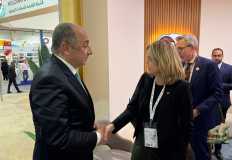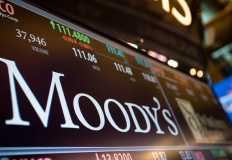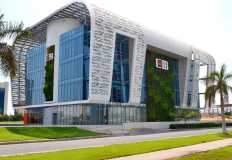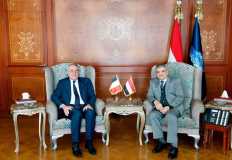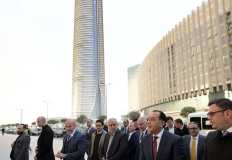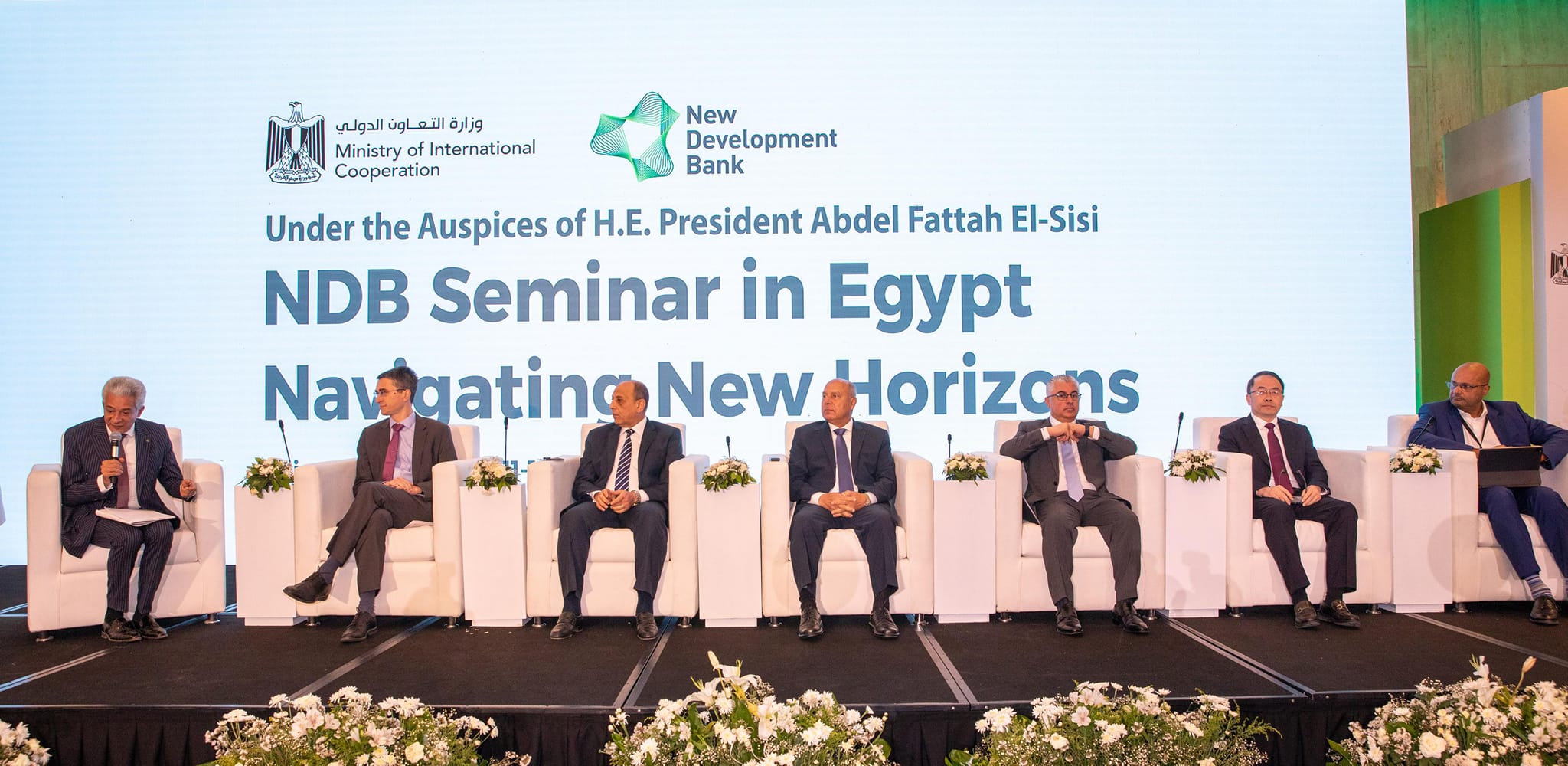
Walid Jamal El-Din, Chairman of the Suez Canal Economic Zone Authority, participated, Wednesday, in the first forum of the New Development Bank (NDB), held on the occasion of Egypt's joining the bank in March 2023. The NDB is the financial and economic arm of the BRICS group. The forum, held under the title "Exploring New Horizons," aims to introduce the bank's operations, enhance cooperation with the government and private sector, discuss future cooperation opportunities between the founding and new members of the BRICS group, and maximize the benefits of the bank's cooperation potential in light of Egypt's pivotal role in the region, as a hub linking the continents of the world.
During the "Egypt as a
Logistics Hub" session, Walid Gamal El-Din reviewed the Suez Canal
Economic Zone Strategy 2020-2025, transforming the zone into a model for
international economic cooperation. This has attracted numerous international
investments that have chosen the zone as a hub for their expansions in various
markets due to its distinguished strategic location and trained technical labor
at competitive costs. He emphasized that the strategic location of the economic
zone and its affiliated ports on the Red Sea and the Mediterranean Sea supports
global supply chains. Cooperation with the New Development Bank strengthens
ties with BRICS countries, further boosting the zone's appeal.
Witnessed by Lieutenant General
Kamel Al Wazir, Minister of Transport; Lieutenant General Mohamed Abbas Helmy,
Minister of Civil Aviation; Stephane Gimbert, Director of the World Bank Group
in Egypt; Fengnian Zhao, Chief Financial Officer of COSCO SHIPPING Ports; and
Richard Soundarji, President of the Chinese International Capital Corporation
in the Gulf region and Africa.
Walid Gamal El-Din emphasized
that the political leadership's commitment to infrastructure investment has
been instrumental in attracting further investments to the economic zone. These
investments are particularly strong in green energy production and ship
bundling. The ongoing infrastructure development has also played a key role in
drawing numerous textile projects to the Qantara region.
Furthermore, this focus on
industry in the West is a promising path for boosting exports and contributing
to Egypt's goal of reaching $100 billion in exports by 2030.
The economic zone's future holds
even greater potential for collaboration with the business communities of the
BRICS countries, building on past successes and promising new opportunities.
